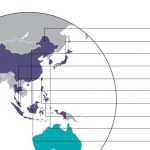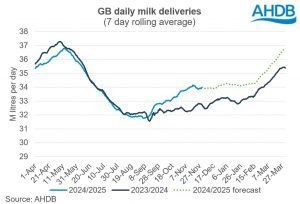
This year however, markets will be under even more pressure as the ability to send surplus fresh product (bulk cream and skim concentrate) to the continent is gone.
The impact has already been seen in spot prices for bulk cream, which dropped below the £1,000/tonne level when EU borders closed in response to the escalating Covid crisis. Regardless of any tariff impacts, barriers to shipping perishable dairy products such as cream and skim concentrate across the Channel mean additional volumes will remain on the home market.
For those processors with a high reliance on spot markets for balancing surplus milk or cream supplies, there is a real risk of lower pricing while markets adjust.
Whether these lower, and more volatile, returns will flow through into farmgate prices will depend on two key factors; whether or not a trade deal is agreed with the EU, and the degree of risk attached to transporting fresh product across the Channel.
In the current environment of lower foodservice activity, anything that restricts demand will hamper the market’s ability to balance and put downward pressure on prices. We will be closely monitoring markets through January as they adjust to the emerging challenges, publishing weekly updates.

























